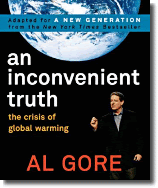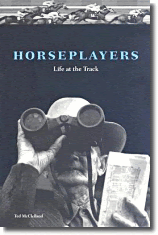The current feature at
the Page 99 Test: Andrew J. Bacevich's 2005 book, The New American Militarism: How Americans Are Seduced by War.
About the book, from the publisher:
 In this provocative book, Andrew Bacevich warns of a dangerous dual obsession that has taken hold of Americans, conservatives and liberals alike. It is a marriage of militarism and utopian ideology -- of unprecedented military might wed to a blind faith in the universality of American values. This mindset, the author warns, invites endless war and the ever-deepening militarization of U.S. policy. It promises not to perfect but to pervert American ideals and to accelerate the hollowing out of American democracy. As it alienates others, it will leave the United States increasingly isolated. It will end in bankruptcy, moral as well as economic, and in abject failure.
In this provocative book, Andrew Bacevich warns of a dangerous dual obsession that has taken hold of Americans, conservatives and liberals alike. It is a marriage of militarism and utopian ideology -- of unprecedented military might wed to a blind faith in the universality of American values. This mindset, the author warns, invites endless war and the ever-deepening militarization of U.S. policy. It promises not to perfect but to pervert American ideals and to accelerate the hollowing out of American democracy. As it alienates others, it will leave the United States increasingly isolated. It will end in bankruptcy, moral as well as economic, and in abject failure.
With The New American Militarism, which has been updated with a new Afterword, Bacevich examines the origins and implications of this misguided enterprise. He shows how American militarism emerged as a reaction to the Vietnam War. Various groups in American society -- soldiers, politicians on the make, intellectuals, strategists, Christian evangelicals, even purveyors of pop culture -- came to see the revival of military power and the celebration of military values as the antidote to all the ills besetting the country as a consequence of Vietnam and the 1960s. The upshot, acutely evident in the aftermath of 9/11, has been a revival of vast ambitions and certainty, this time married to a pronounced affinity for the sword. Bacevich urges us to restore a sense of realism and a sense of proportion to U.S. policy. He proposes, in short, to bring American purposes and American methods -- especially with regard to the role of the military -- back into harmony with the nation's founding ideals.
Among the
praise for The New American Militarism:
"Intellectually serious. Writing very much as a Vietnam veteran, he worries that both major political parties have become too trigger-happy, too keen to dispatch troops abroad. Bacevich takes a dim view of Bush's rhetoric about freedom and argues that the United States' dependence on oil is why it is fighting in the Middle East. He thinks that what some neo-conservatives call World War IV didn't start on 9/11 but in 1980, when Jimmy Carter, having failed to persuade Americans to cut down on their use of gas, declared that any attempt by an 'outside force' to take over the Persian Gulf would be met by a US military response. Bacevich details America's inglorious history in the region to illustrate his point."
--James G. Forsyth, Boston Globe
"A valuable account of the paradoxical consequences of the U.S. effort to recover from Vietnam.... Bacevich--a Boston University professor, West Point alumnus and Vietnam veteran -- demonstrates a fine grasp of past debates on military matters and an ability to relate them to today's events and personalities."
--Lawrence Freedman, Washington Post Book World
"Bacevich is a graduate of West Point, a Vietnam veteran, and a conservative Catholic.... He has thus earned the right to a hearing even in circles typically immune to criticism. What he writes should give them pause.... His conclusion is clear. The United States is becoming not just a militarized state but a military society: a country where armed power is the measure of national greatness, and war, or planning for war, is the exemplary (and only) common project."
--Tony Judt, The New York Review of Books
"Every thoughtful American should read this book.... He has a very important story to tell and tells it well.... Bacevich's main argument...is the most powerful and compelling part of his highly original analysis.... He concludes with a chapter on what to do, which is utterly sound if politically impossible."
--Chalmers Johnson, San Diego Union-Tribune
"Buy this, read this, and make others do the same, but only if you are open to new perspectives. Bacevich brings a gimlet eye to an array of subjects. Here are some of the freshest observations available on contemporary American military affairs, political life and popular culture -- indeed, probably too fresh and challenging for many readers, right and left."
--Thomas E. Ricks, Military Correspondent, Washington Post, and author of Making the Corps and A Soldier's Duty
Andrew Bacevich is professor of international relations at Boston University. A graduate of the U. S. Military Academy, he received his Ph. D. in American Diplomatic History from Princeton University. Before joining the faculty of Boston University in 1998, he taught at West Point and at Johns Hopkins University.
Bacevich's previous books include American Empire: The Realities and Consequences of U. S. Diplomacy (2002) and The Imperial Tense: Problems and Prospects of American Empire (2003). His essays and reviews have appeared in a wide variety of scholarly and general interest publications including The Wilson Quarterly, The National Interest, Foreign Affairs, Foreign Policy, The Nation, The American Conservative, and The New Republic . His op-eds have appeared in the New York Times, Washington Post, Wall Street Journal, Financial Times, Boston Globe, Los Angeles Times, and USA Today, among other newspapers.
The Page 99 Test: The New American Militarism.
--Marshal Zeringue
Dr. Sarah Halifax decoded the first-ever radio transmission received from aliens. Thirty-eight years later, a second message is received and Sarah, now 87, may hold the key to deciphering this one, too ... if she lives long enough.







































